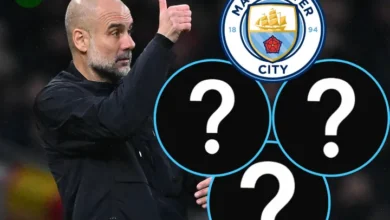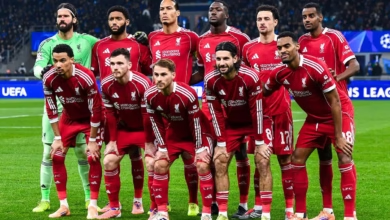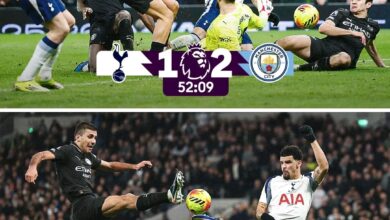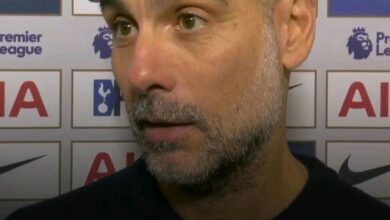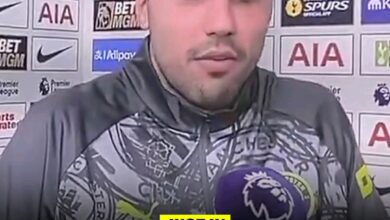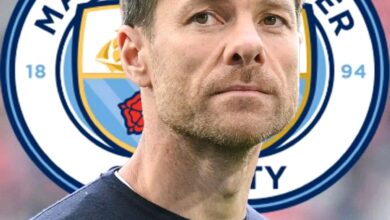Viktor Gyokeres in Limbo: Arsenal’s Strategic Freeze on Talks While Pursuing Elite Striker Alternatives

The transfer market rarely operates in simple terms, and the ongoing saga surrounding Viktor Gyokeres perfectly encapsulates the complex web of negotiations, strategic positioning, and competing interests that define modern football’s most significant deals. The Sporting CP striker, who has emerged as one of Europe’s most coveted forwards, finds himself in an increasingly precarious position as Arsenal, despite months of reported interest, have seemingly pressed pause on their pursuit to focus on alternative targets.
Viktor Gyokeres’ transformation from a promising but inconsistent striker to one of Europe’s most lethal forwards represents one of the most remarkable career trajectories in recent memory. The Swedish international’s journey through English football with Brighton, Swansea City, and Coventry City provided glimpses of his potential, but it wasn’t until his move to Sporting CP in 2023 that he truly announced himself on the continental stage.
Under the guidance of Ruben Amorim at Sporting, Gyokeres flourished in a system that maximized his physical attributes while providing the creative support necessary for his clinical finishing to shine. His record-breaking performances in the Primeira Liga, combined with impressive showings in European competition, quickly caught the attention of Europe’s elite clubs. The striker’s ability to combine raw power with surprising technical ability, coupled with his relentless work rate and tactical intelligence, made him an attractive proposition for clubs seeking to bolster their attacking options.
The 27-year-old’s statistics speak volumes about his development. His goal-scoring exploits have not only helped Sporting maintain their domestic dominance but have also demonstrated his capacity to perform on the biggest stages. His performances against top-tier opposition in the Champions League and Europa League have shown that he possesses the mental fortitude and technical skills necessary to succeed at the highest level of the game.
Arsenal’s interest in Gyokeres emerged as part of Mikel Arteta’s ongoing project to build a squad capable of sustained success both domestically and in European competition. The Gunners’ need for additional firepower became apparent during their recent campaigns, where despite impressive performances from their current attacking options, the lack of a proven goal-scorer in crucial moments often proved decisive.
The north London club’s scouting network had been monitoring Gyokeres’ progress for some time, recognizing that his profile aligned perfectly with Arteta’s tactical requirements. His ability to press from the front, hold up play, and create opportunities for teammates while maintaining a consistent goal-scoring threat made him an ideal candidate for Arsenal’s system. The striker’s Premier League experience, albeit limited, was seen as an additional advantage that could facilitate a smoother transition back to English football.
Arsenal’s approach to the transfer market under Arteta and sporting director Edu has been characterized by careful planning and strategic patience. Rather than pursuing immediate fixes, the club has focused on identifying players who can contribute both immediately and over the long term. Gyokeres appeared to fit this profile perfectly, offering the combination of proven ability and potential for further development that Arsenal typically seeks in their transfer targets.
The initial discussions between Arsenal and Sporting CP were reportedly positive, with both clubs recognizing the mutual benefits of a potential deal. For Arsenal, Gyokeres represented a striker who could provide the clinical edge they had been seeking, while for Sporting, the opportunity to command a significant transfer fee for their star asset was economically attractive.
However, despite the apparent alignment of interests and Gyokeres’ reported desire to make the move to the Emirates Stadium, Arsenal have reportedly put talks on hold. This decision reflects the complex considerations that modern clubs must navigate when pursuing high-profile transfers, particularly when multiple attractive options present themselves simultaneously.
Sources close to the negotiations suggest that Arsenal’s pause on Gyokeres discussions is not indicative of a loss of interest in the player, but rather a strategic decision to explore alternative options that may offer greater value or better fit their specific requirements. The club’s hierarchy, led by Arteta and the recruitment team, are understood to have identified two elite strikers who have taken precedence in their transfer planning.
This strategic freeze highlights the evolution of Arsenal’s approach to the transfer market. Under previous regimes, the club might have pursued multiple targets simultaneously or made hasty decisions based on immediate availability. The current leadership’s willingness to pause negotiations demonstrates a more sophisticated understanding of market dynamics and a confidence in their ability to secure their preferred targets.
The decision to freeze talks also reflects Arsenal’s improved financial position and their ability to be selective in their transfer business. No longer operating under the severe financial constraints that characterized earlier periods, the club can afford to be patient and pursue their preferred targets rather than settling for compromise options.
The situation becomes more complex when considering Manchester United’s potential involvement in the Gyokeres saga. Ruben Amorim’s appointment as United’s manager has naturally led to speculation about potential reunions with players he successfully managed at Sporting CP. The Portuguese coach’s intimate knowledge of Gyokeres’ abilities and his proven track record of maximizing the striker’s potential make United a logical destination.
Amorim’s tactical system at Sporting was specifically designed to accommodate Gyokeres’ strengths while minimizing his weaknesses. The coach’s understanding of how to deploy the striker effectively could prove crucial in any potential adaptation to the Premier League. This familiarity factor gives United a significant advantage in any potential pursuit, as they can offer Gyokeres the continuity of working with a manager who has already proven capable of unlocking his full potential.
However, Manchester United’s own strategic considerations complicate their potential pursuit of Gyokeres. The club’s recent transfer activities and financial commitments may limit their ability to compete for the striker’s signature, particularly if Arsenal or other wealthy clubs decide to make serious offers. Additionally, United’s current squad composition and tactical requirements may not align perfectly with Gyokeres’ profile, despite Amorim’s previous success with the player.
The timing of Amorim’s appointment also plays a crucial role in the dynamics of any potential transfer. As a newly appointed manager, he may need to assess his current squad thoroughly before making significant transfer requests. This period of evaluation could provide other clubs with opportunities to advance their own negotiations for Gyokeres.
Arsenal’s decision to prioritize two elite strikers over Gyokeres suggests that the club has identified targets they believe offer superior value or better alignment with their strategic objectives. While the specific identities of these players remain subject to speculation, the fact that Arsenal considers them elite options indicates the caliber of players now within the club’s reach.
The pursuit of elite-level strikers represents a significant evolution in Arsenal’s transfer strategy. Previously, the club often focused on developing promising talents or securing players from smaller leagues. The current approach suggests a confidence in the club’s ability to attract and afford top-tier talent, reflecting both their improved financial position and enhanced reputation under Arteta’s management.
These alternative targets likely offer different profiles compared to Gyokeres, possibly including players with more extensive experience at the highest levels of European football or those whose playing styles may be considered more complementary to Arsenal’s existing squad composition. The club’s analytical approach to recruitment suggests that these preferences are based on detailed statistical analysis and tactical considerations rather than mere reputation or availability.
The decision to prioritize these alternatives also indicates Arsenal’s confidence in their ability to secure their preferred targets. This confidence likely stems from improved relationships with player agents, enhanced financial capabilities, and the club’s growing attractiveness as a destination for elite players seeking to compete for major honors.
The Gyokeres situation illustrates the complex financial dynamics that govern modern transfer markets. Sporting CP’s valuation of their star striker reflects both his on-field contributions and the inflation that characterizes contemporary football transfers. The Portuguese club’s negotiating position is strengthened by the player’s contract situation and the interest from multiple high-profile clubs.
Arsenal’s approach to the financial aspects of the deal demonstrates their evolved understanding of transfer market economics. Rather than engaging in bidding wars or making inflated offers, the club appears committed to conducting business within their established financial frameworks. This discipline, while potentially frustrating for fans eager to see new signings, reflects a sustainable approach to squad building that prioritizes long-term success over short-term gains.
The broader market context also influences the Gyokeres situation. With multiple clubs competing for a limited pool of elite strikers, prices inevitably increase, and negotiations become more complex. Arsenal’s decision to explore alternative options may reflect their assessment that better value can be found elsewhere, or that their preferred targets offer superior combinations of ability, age, and cost.
From a tactical perspective, Gyokeres’ profile presents both opportunities and challenges for Arsenal. His physical presence and aerial ability would add a different dimension to Arsenal’s attack, providing alternative tactical options when their usual approach proves ineffective. However, integrating a player with his specific skill set into Arteta’s fluid attacking system would require careful consideration and potentially tactical adjustments.
The striker’s pressing intensity and work rate align well with Arsenal’s high-energy approach, but questions remain about how his style would complement the club’s existing attacking talents. The interplay between Gyokeres and players like Bukayo Saka, Martin Ødegaard, and Gabriel Martinelli would be crucial to the success of any potential signing.
Arsenal’s apparent preference for alternative targets may reflect tactical considerations that go beyond pure goal-scoring ability. The modern game increasingly demands versatility from forwards, and the club may have identified players whose all-around games better suit their tactical requirements. This emphasis on tactical fit over individual brilliance represents a mature approach to squad building that prioritizes collective success over individual star power.
From Gyokeres’ standpoint, the situation presents both opportunities and uncertainties. His reported desire to join Arsenal reflects the attractiveness of the project that Arteta has built and the prospect of competing for major honors in one of Europe’s top leagues. The opportunity to work under a progressive coach like Arteta, combined with Arsenal’s recent trajectory and ambitious plans, would naturally appeal to a player at the peak of his career.
However, the uncertainty surrounding Arsenal’s commitment to pursuing the deal may prompt Gyokeres to consider alternative options. The striker’s age means that his next move could be crucial in determining the trajectory of his career, making the selection of his next club a decision of paramount importance. The delay in Arsenal’s pursuit may open doors for other clubs to present compelling alternatives.
The player’s professional approach to the situation, continuing to perform at a high level for Sporting despite the transfer speculation, demonstrates the mental strength and professionalism that made him attractive to elite clubs in the first place. This attitude will likely serve him well regardless of how the current situation resolves.
The current stalemate has significant implications for all parties involved. For Arsenal, the risk of missing out on a proven goal-scorer while pursuing alternatives that may not materialize represents a strategic gamble that could impact their short-term competitive prospects. However, their confidence in alternative options suggests a belief that better deals are available.
Sporting CP faces the challenge of managing a valuable asset whose future remains uncertain. The club’s financial planning and competitive preparations must account for various scenarios, from retaining Gyokeres for another season to securing a significant transfer fee that could fund multiple acquisitions.
For Gyokeres himself, the limbo represents both frustration and opportunity. While the uncertainty may be mentally challenging, the interest from multiple elite clubs positions him well for a significant career move, regardless of whether it materializes with Arsenal or elsewhere.
The resolution of the Gyokeres situation will likely depend on several factors developing over the coming weeks and months. Arsenal’s success in pursuing their preferred alternatives will largely determine whether they return to negotiations for the Swedish striker. Similarly, developments at Manchester United and other interested clubs could reshape the competitive landscape for his signature.
The broader implications of this situation extend beyond the immediate transfer considerations. It represents a test of Arsenal’s evolved transfer strategy and their ability to successfully navigate complex negotiations while pursuing multiple targets simultaneously. The outcome will provide insights into the club’s current standing in the transfer market and their ability to compete for elite talent.
As the situation continues to evolve, all parties must balance their immediate needs with long-term strategic considerations. For Arsenal, this means weighing the certainty of Gyokeres’ proven ability against the potential superiority of alternative targets. For the player, it involves deciding whether to wait for Arsenal’s decision or explore other opportunities that may arise.
The Viktor Gyokeres transfer saga exemplifies the complexity and unpredictability that characterize modern football transfers. While the current freeze on talks may seem like a setback, it more accurately reflects the sophisticated decision-making processes that now govern elite football clubs’ approach to squad building. The eventual resolution of this situation will likely have lasting implications for all parties involved and could serve as a case study in modern transfer market dynamics.







